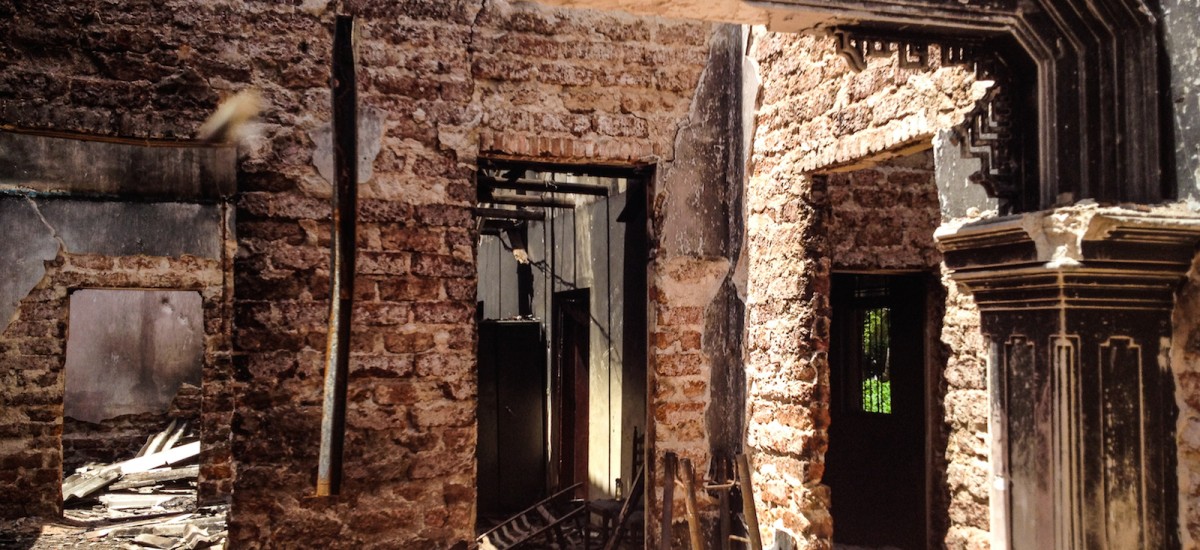Photo courtesy Thyagi Ruwanpathirana
Hate speech is growing more effective and pervasive among media platforms in Sri Lanka, prompting concern from Muslim and Christian minorities amid mounting attacks.
The Colombo-based Centre for Policy Alternatives (CPA) released a report this week on the challenges surrounding the significant uptick in online-based hate speech in post-war Sri Lanka.
“The growth of content creation and consumption online, wider and deeper than any other media in the country and at an accelerated pace, has also resulted in low risk, low cost and high impact online spaces to spread hate, harm and hurt against specific communities, individuals or ideas,” notes the report.
S.Y. Muhammad Saleem, a member of the administration committee of the Hairiya Jummaha mosque in Dambulla, said that anti-Muslim screeds on Facebook have led to multiple attacks on his mosque.
The latest attack was just last week when two petrol bombs were thrown into the mosque.
“Buddhist extremist groups campaign every day by saying Islamic extremists must be exterminated, and, if not, worse conflict could occur in the future,” he said. “[They say] ‘Muslims are dreaming of the day Sri Lanka turns into Arabia. We won’t give our country over to Muslims.’”
Saleem said he and other Muslims have received threats through Facebook, prompting him to file a police complaint.
“We respond on Facebook against their narrow views then we see 40-50 well organized reaction comments, slinging mud at us, from extremist Buddhists,” he said.
With a population of 21 million, there are more than 2.3 million users of social media, the majority of them male, according to the CPA report.
The Venerable Magalle Sudantha Thero, the head of Sinhala Rawaya, a radical Sinhalese Buddhist nationalist organization, said the organization has formed a special youth group to work on social media.
“We educate our Buddhists on ISIS and the global militant jihad over Facebook, there’s nothing wrong [with that],” the monk said.
“There are no Buddhist terrorists but [there are] Islamic terrorists in the world. We revealed the truth a few months before but officials were not very serious about the issue, now Interpol has issued a security warning that the Taliban operates in Sri Lanka,” he said.
Ven Sudantha defended the postings, saying the group never made “false accusations”.
“We use Facebook to enlighten our people and it’s our prime duty to serve the nation and protect the country.”
Offensive photos and extreme commentary posted by the Buddhist group have sparked major tensions.
In June, Buddhist groups circulated a story online saying that a monk was attacked by Muslims, sparking a riot in Aluthgama that saw clashes on the street. Four people were killed, more than 200 homes and shops destroyed, and 17 mosques attacked. More than 2,200 people were displaced by the violence.
Saleem said that “freedom should have limitations” if the freedoms allotted to Buddhist extremists end up harming others”.
Yamini Ravindran, a legal and advocacy coordinator at the National Christian Evangelical Alliance of Sri Lanka (NCEASL), said Buddhist nationalist groups operate many Facebook pages and often attack evangelical churches by claiming they unethically convert Buddhists.
“Various false allegations have been brought on our churches and one of [the groups] has even reported us to Facebook administration,” Ravindran said. “Our churches face many mob attacks.”
About 60 Christian churches and evangelical prayer centers have been targeted so far this year, while 105 were attacked in 2013, according to NCEASL.
Ruki Fernando, one of country’s leading human rights activists, said that Facebook has also been used to promote violence against journalists and activists who have been critical of how Buddhism is being employed.
Saleem, for his part, feels it’s only a matter of time before such speech ignites renewed clashes.
“There is petrol being spilled across the country, so if there is a spark anywhere it could explode.”
###
This story originally appeared on ucanews.com and appears on Groundviews as part of a content sharing agreement.

